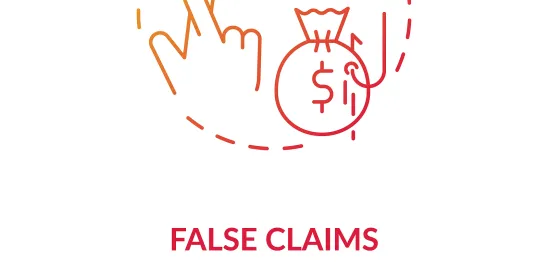Takeaways
- The Administrative False Claims Act expands federal agencies’ authority to investigate and resolve false claims independently.
- The $1 million monetary threshold for administrative claims allows agencies to handle larger fraud cases without going through judicial processes.
- Entities interacting with federal agencies could lower risks by enhancing their internal compliance programs and emphasizing accurate documentation and reporting.
Article
Significant revisions to the Program Fraud Civil Remedies Act of 1986 (PFCRA), now called the Administrative False Claims Act (AFCA), bolster federal agencies’ ability to address alleged fraud by expanding their authority to pursue and resolve false claims administratively. Government contractors, grant recipients, and other entities engaged with federal programs should consider the implications of the revisions passed in the National Defense Authorization Act (NDAA) for fiscal year 2025, enacted on Dec. 23, 2024.
Background: False Claims Act, AFCA
The AFCA, formerly known as the PFCRA, provides federal agencies with an administrative mechanism to address false claims and statements made to the government. Unlike the False Claims Act (FCA), which typically involves judicial proceedings and “larger” claims, the AFCA allows agencies to investigate and resolve “small” fraud cases internally and impose civil penalties, damages, and assessments without court intervention. This administrative approach streamlines the process, enabling faster resolution of claims while maintaining enforcement against fraudulent activities.
Historically, the federal government most frequently deployed the FCA against government fraud. Under the AFCA, agencies typically investigate possible violations and their findings are reviewed by an independent agency official who determines whether adequate evidence of a false claim or statement exists. If so, the matter is referred to the Department of Justice (DOJ). If DOJ declines to litigate the case, the agency can bring an administrative action with DOJ approval.
The AFCA requires agencies to issue implementing guidance on their investigative and administrative hearing process. Although many agencies’ administrative enforcement under the AFCA has been infrequent, that may change following the latest revisions.
Key Revisions
The 2025 NDAA introduced several substantive changes to the AFCA, aimed at modernizing and strengthening its enforcement capabilities. The most significant updates include:
1. Renamed Administrative False Claims Act
The statute has been officially renamed the Administrative False Claims Act, reflecting an expanded scope and alignment with broader anti-fraud efforts and clarifying the focus on addressing false claims administratively across federal programs.
2. Increased monetary threshold for administrative claims
The 2025 NDAA raises the ceiling for administrative claims from $150,000 to $1 million, significantly expanding the scope of cases that federal agencies can handle administratively without resorting to judicial processes, streamlining enforcement, and reducing litigation costs. The law also provides for periodic adjustments to this threshold for inflation, ensuring relevance over time.
3. Expanded agency authority
Broader authority to federal agencies to independently investigate and resolve false claims and statements enhances agencies’ ability to act swiftly and decisively against fraud. Agencies can now pursue cases involving fraudulent claims for payment or approval, as well as false statements made knowingly to obtain government benefits or contracts.
4. Compliance deadline for agencies
The NDAA mandates that federal agencies update their regulations and procedures to comply with the revised AFCA by June 21, 2025.
5. Enhanced penalties, assessments
The AFCA continues to allow agencies to impose civil penalties and assessments on individuals or entities that knowingly submit false claims or engage in fraudulent conduct.
Implications for Government Contractors, Grant Recipients
The revisions to the AFCA have significant implications for entities, including government contractors, grant recipients, and healthcare providers, that interact with federal agencies. Key considerations for such entities include:
- Heightened compliance risks: Businesses and individuals face greater scrutiny for claims submitted to federal programs. Implementing robust compliance programs, including regular audits and employee training, are essential to mitigate the risk of AFCA violations.
- Increased enforcement activity: Federal agencies are now better equipped to pursue fraud cases administratively, which could lead to a rise in investigations and enforcement actions. Entities should be prepared for more oversight and ensure accurate documentation and reporting in all government interactions.
- Whistleblower protections: The FCA’s whistleblower protections, which prohibit retaliation against employees who report fraud, remain relevant in the AFCA. Organizations should foster a culture of transparency and protect employees who raise concerns about potential violations.
- Easier administrative enforcement: The increased AFCA liability ceiling could make the administrative process more appealing to agencies looking for a quicker path to recovery.
What Can Contractors Do?
Navigating the FCA and AFCA requires a proactive approach to compliance and a comprehensive understanding of the evolving enforcement landscape. Contractors should consider working with counsel to develop robust compliance programs, conduct internal investigations when billing or compliance issues arise, train leaders in how to spot and address potential fraud, waste, and abuse, and review internal policies and conduct risk assessments.




 />i
/>i
